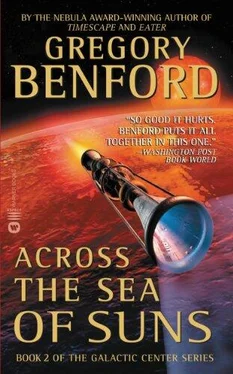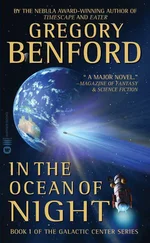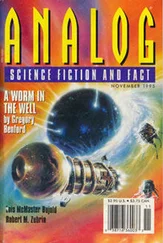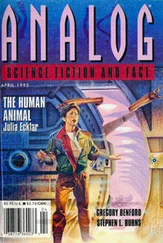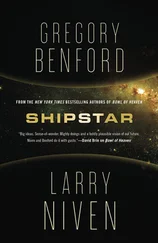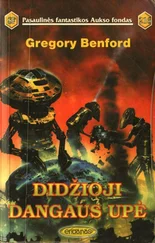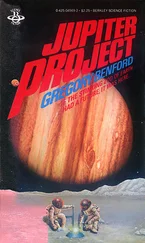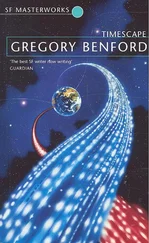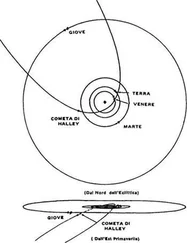Gregory Benford - Across the Sea of Suns
Здесь есть возможность читать онлайн «Gregory Benford - Across the Sea of Suns» весь текст электронной книги совершенно бесплатно (целиком полную версию без сокращений). В некоторых случаях можно слушать аудио, скачать через торрент в формате fb2 и присутствует краткое содержание. Год выпуска: 2007, ISBN: 2007, Издательство: Grand Central Publishing, Жанр: Космическая фантастика, на английском языке. Описание произведения, (предисловие) а так же отзывы посетителей доступны на портале библиотеки ЛибКат.
- Название:Across the Sea of Suns
- Автор:
- Издательство:Grand Central Publishing
- Жанр:
- Год:2007
- ISBN:978-0-446-50634-2
- Рейтинг книги:3 / 5. Голосов: 1
-
Избранное:Добавить в избранное
- Отзывы:
-
Ваша оценка:
- 60
- 1
- 2
- 3
- 4
- 5
Across the Sea of Suns: краткое содержание, описание и аннотация
Предлагаем к чтению аннотацию, описание, краткое содержание или предисловие (зависит от того, что написал сам автор книги «Across the Sea of Suns»). Если вы не нашли необходимую информацию о книге — напишите в комментариях, мы постараемся отыскать её.
Across the Sea of Suns — читать онлайн бесплатно полную книгу (весь текст) целиком
Ниже представлен текст книги, разбитый по страницам. Система сохранения места последней прочитанной страницы, позволяет с удобством читать онлайн бесплатно книгу «Across the Sea of Suns», без необходимости каждый раз заново искать на чём Вы остановились. Поставьте закладку, и сможете в любой момент перейти на страницу, на которой закончили чтение.
Интервал:
Закладка:
“In a way,” the astronomer said with a certain prim precision. “Not optical stars, no. Pulsars.”
“Where?”
“See the deep blue ones?”
“Yes, I was wondering—”
“They’re where pulsars should be.”
Nigel remembered vaguely that rapidly spinning neutron stars accounted for the pulsar phenomenon. As the compacted cores of these dense stars spun, they released streams of plasma. These luminous swarms flapped like flags as they left the star. They emitted gouts of radio noise. As a star spun, it directed these beams of radio emission outward, like a lighthouse sweeping its lamp across a distant ship. When the beam chanced to intersect the Earth, astronomers saw it, measured its frequency of sweep.
The astronomer went on, “They’re so prominent in this map. Far more luminous than they are in reality.”
“Perhaps they are important?” Nikka asked.
“Umm.” The astronomer frowned. His face was lined with fatigue but the fascination of this place washed away the past. Even amid tragedy, curiosity was an itch that needed scratching. “Could be. As navigation beacons, maybe?”
Nigel thought of his lighthouse analogy. Beeping signals across the blind abyss?
But there were easier ways to find your way among the stars. He pointed again. “Why is there that big blue patch at the center, then?”
The astronomer looked more puzzled. “There aren’t any pulsars at the galactic center.”
Nikka asked, “What is there? Just stars?”
“Well, it’s got a lot of gas, turbulent motions, maybe a black hole. It’s the most active region of the whole galaxy, sure, but …”
Nikka asked, “Could it be that the galactic center and pulsars have something in common?”
The astronomer pursed his lips, as if he disliked making such leaps. “Well … there’s a lot of plasma.”
Nigel asked slowly, “What kind?”
“All kinds,” the astronomer said with a touch of condescension. “Hot gas made still hotter. Until the electrons separate from the ions and the whole system becomes electrically active.”
Nigel shook his head, not knowing himself where he was headed. You just skated, and went where the ice took you. “Not around pulsars. I remember that much.”
The astronomer blinked. In his concentration the weight of the last few days slipped from him and his face smoothed. “Oh. Oh, you’re right. Pulsars put out really relativistic plasma. The stuff comes whipping off the neutron star surface close to the speed of light.”
Nigel wasn’t in the mood for a lecture. Still, something tugged at him. “What kind of plasma?”
“There aren’t any heavy ions, no protons to speak of. It’s all electrons and their antiparticles.”
“Positrons,” Nigel said.
“Right, positrons. The electrons interact with the positrons in some fashion and make the radio emission. We—”
“And at galactic center?” Nigel persisted.
The astronomer blinked. “Well, yeah … There was report a while back. … A detection of positrons at the galactic center.” His voice caught and then a wondering enthusiasm crept into it. Nigel watched the man’s face fill with a wan yet growing delight. “Positrons. If they slow down, meet electrons, the two annihilate. Give off gamma rays. A gamma-ray telescope Earthside, Jacobson’s group I think it was, saw the annihilation line.”
Nigel felt a slow, gathering certainty. “Those blue dots …”
Nikka said softly, “The Watcher keeps track of where positrons appeared naturally in the galaxy.”
The fact sank into them. The Watcher’s main job was to stamp out organic life, that was clear. But something had told the ancient craft to notice pulsars and the positron plasmas they spewed out into the galaxy. A phenomenon that occurred also at galactic center—but on a hugely larger scale, apparently, judging by the large blue zone at the very hub of the rotating swirl.
The astronomer said, puzzled, “But there can’t be so many pulsars at the center of the galaxy …”
“Still, there is that blue globe,” Nigel said.
Something was happening at galactic center. Something important.
And the machine civilization thought it was vital, perhaps as important as the obliteration of the organic yeast they so hated.
Nigel said softly, with a gathering certainty, “If we are ever to deal with these things, with their Watchers and Snarks and the whole damn mechanical zoo of them … we’ve got to confront them.”
Nikka saw what he meant. “But—Earth! We can return now. There is so much to be done.”
He shook his head. Looking around the room, with its myriad sliding sheets of alien thought and strange design, he watched the luminescence play upon the haggard faces.
Faces pursued by a voracious and unyielding intelligence. Faces lined and worn by the silent anxiety they all felt, just being here.
The Watcher would give them no rest. They had to get out. Move on.
But not simply run back home. Earth was no haven. There was no blithe sanctuary now. Not anywhere in the whole swarming galaxy.
“No. We’ve got the means. That little ship we found. It must be a fast craft. I’ll bet it came here and supervised the building of this Watcher.”
“Nigel …” Nikka began a protest, then stopped.
“That ship still works. It could go back. Back where it came from. Where we must go.”
They began to murmur and protest.
A small band of humans, their incessant crosstalk rebounding from the alien surfaces. Nigel smiled.
Their dreams lay Earthward. They would have to be convinced.
le’s all slide out of here one of these nights
But he knew he could convince them. The rest of humanity was reeling under war and a vast, brute yoke. If this small knot did not seize this opportunity, humanity would dwell forever in the dimness of ignorance. Victims. Prey.
and go for howling adventures amongst the Injuns
There was no turning back now. Maybe there never had been any possibility of turning away from what lay out here. He had felt it for a long time, since the first vague pricklings of understanding at the sunny, long lost Jet Propulsion Laboratory. Odd, he felt almost nostalgic for the place now.
Now that he knew he would certainly never see it again.
For there was always the opening-out, and it would always win.
over in the territory
He pointed at the somber, revolving disk of countless fevered stars. Unfathomable messages glided across quilted surfaces.
and I says all right, that suits me
“Let’s go,” he said, and pointed at the galactic center.
Timeline of Galactic Series
2019 A.D Nigel Walmsley encounters the Snark, a mechanical scout.
2024 Ancient alien starship found wrecked in Marginis crater, on Earth’s moon.
2041 First signal received at Earth from Ra.
2049 First near-light-speed interstellar probes.
2060 Modified asteroid ships launched, using starship technology extracted from Marginis wreck.
2064 Lancer starship launched with Nigel Walmsley aboard.
2066 Discovery of machine intelligence Watchers.
2067 First robotic starship explorations. Swarmers and Skimmers arrive at Earth.
2076 Lancer arrives at Ra. Discovery of the “microwavesighted” Natural society.
2077 Lancer departs Ra.
2081 Mechanicals trigger nuclear war on Earth.
2085 Starship Lancer destroyed at Pocks. Watcher ship successfully attacked, with heavy human losses.
2086 Nigel Walmsley and others escape in Watcher ship, toward Galactic Center. Humans launch robot starship vessels to take mechanical technology to Earth.
2088 Humans contain Swarmer-Skimmer invasion. Alliance with Skimmers.
Читать дальшеИнтервал:
Закладка:
Похожие книги на «Across the Sea of Suns»
Представляем Вашему вниманию похожие книги на «Across the Sea of Suns» списком для выбора. Мы отобрали схожую по названию и смыслу литературу в надежде предоставить читателям больше вариантов отыскать новые, интересные, ещё непрочитанные произведения.
Обсуждение, отзывы о книге «Across the Sea of Suns» и просто собственные мнения читателей. Оставьте ваши комментарии, напишите, что Вы думаете о произведении, его смысле или главных героях. Укажите что конкретно понравилось, а что нет, и почему Вы так считаете.
